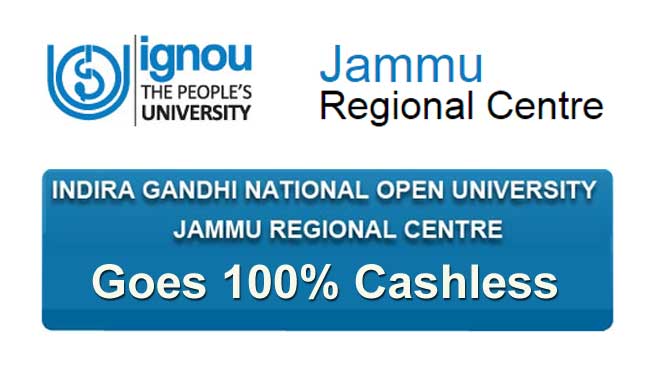IGNOU MA Sociology 2nd Year Syllabus
Are you a student of IGNOU’s MA Sociology (MSO) programme entering your second year? Wondering what subjects you’re going to study, and how to prepare for them? Then you’re at the right place. In this blog, we’ll explain the IGNOU MA Sociology 2nd Year Syllabus in a simple, block-wise format and answer some common questions students usually have.
Related Articles: IGNOU MA Sociology 1st Year Syllabus
Let’s dive in!
What Does IGNOU MA Sociology 2nd Year Include?
In the second year of the programme, IGNOU offers a mix of interdisciplinary and elective courses. Students are required to choose any 4 out of the 6 available subjects, each carrying 8 credits, making a total of 32 credits for the year.
Here’s the list of available courses:
MSOE-001: Sociology of Education
This course explores how education interacts with society. It introduces students to sociological theories of education, the role of institutions, and education in India’s social context.
Block-wise Topics:
- Block-1: Perspective and Theories on Education
- Block-2: Pedagogy, Curriculum and Knowledge
- Block-3: Education, Social Processes and Institutions
- Block-4: Education, Social and Human Development
- Block-5: Educational Systems: Comparative Perspectives
- Block-6: Educational System in India
- Block-7: Education, Globalisation and Liberalisation
- Block-8: Open Distance Learning: Emerging Facts
MSOE-002: Diaspora and Transnational Communities
A fascinating subject that studies global migration, identity, culture, and the challenges faced by diaspora populations.
Block-wise Topics:
- Block-1: Understanding Diaspora
- Block-2: Journey of the Indian Diaspora
- Block-3: The Profile of Indian Diaspora
- Block-4: Indian Diaspora: Linkages and Policies
- Block-5: India and Indian Diaspora: Images and Perceptions
- Block-6: Identity, Nation, State and Transnational Communities
MSOE-003: Sociology of Religion
This course provides sociological interpretations of religion, exploring how religion shapes societies and vice versa.
Block-wise Topics:
- Block-1: Definitions and Approaches
- Block-2: Classical Theories
- Block-3: Ethnographic Studies of Religion
- Block-4: Contemporary Theories
- Block-5: Religious Pluralism
- Block-6: Religion and Social Change
- Block-7: Religious Revivalism: New Movements and Cults
MSOE-004: Urban Sociology
Urban Sociology is the study of city life, urbanization, urban problems, and planning.
Block-wise Topics:
- Block-1: Concepts
- Block-2: Urban Ecological Processes and Theories
- Block-3: Indian Cities: Case Studies
- Block-4: Urban Sociology in India
- Block-5: Urbanisation and Its Impact
- Block-6: City and Occupations: Comparative Perspectives (Case Studies)
- Block-7: Urban Issues in India
- Block-8: Urban Governance
🏛️ MPA-016: Decentralisation and Local Governance
This is an interdisciplinary subject from Public Administration that discusses local government systems, decentralization policies, and governance at grassroots levels.
Unit-wise Topics:
- Unit-1: Concept, Evolution and Significance of Democratic Decentralisation
- Unit-2: Contextual Dimensions of Democratic Decentralisation–I: Political, Constitutional and Administrative
- Unit-3: Contextual Dimensions of Democratic Decentralisation–II: Social, Economic and Geographical
- Unit-4: Understanding Decentralisation in Contemporary Settings
- Unit-5: Components of Decentralised Development–I: Empowerment
- Unit-6: Components of Decentralised Development–II: Socioeconomic and Politico-administrative
- Unit-7: Components of Decentralised Development–III: Equal Distribution of Benefits of Development
- Unit-8: Partnership Among Different Levels of Government–I: Union and State Governments
- Unit-9: Partnership Among Different Levels of Government–II: Local Authorities and Special Purpose Agencies
- Unit-10: Partnership Between Local Government and Non-State Agencies/Actors
- Unit-11: Impact of Decentralised Development
- Unit-12: Evolution of Local Governance (Before 73rd & 74th Amendment)
- Unit-13: Features of 73rd and 74th Constitutional Amendment
- Unit-14: Intra-Local Government Relationship–II: Urban
- Unit-15: Development Planning: Nature and Scope
- Unit-16: Micro Level Plans: Formulation and Implementation
- Unit-17: Structural Reforms: Resources, Finances, Powers and Functions
- Unit-18: Capacity Building of Grassroots Functionaries
- Unit-19: Sustainable Development and Challenges to Decentralised Governance
- Unit-20: Decentralisation: The Road Ahead
- Unit-21: Capacity Building of Grassroots Functionaries
- Unit-22: Sustainable Development and Challenges to Decentralised Governance
- Unit-23: Decentralisation : The Road Ahead
MPS-003: India: Democracy and Development
This is an interdisciplinary course that provides an in-depth understanding of India’s political structure, democratic evolution, and development processes. It’s borrowed from Political Science and is a popular choice among students.
Unit-wise Topics:
- Unit-1: Legacy of National Movement With Reference To Development, Rights and Participation
- Unit-2: Debate on Models of Development
- Unit-3: Constitution and Social Transformation
- Unit-4: Diversity and Pluralism
- Unit-5: Inequality: Caste and Class
- Unit-6: Political Economy of Development
- Unit-7: Structure and Growth of Economy (Poverty, Surplus and Unevenness)
- Unit-8: Legislature
- Unit-9: Bureaucracy, Police and Army
- Unit-10: Legal System and Judiciary
- Unit-11: Federalism
- Unit-12: Devolution of Powers and Local Self-Government
- Unit-13: Political Parties and Political Participation
- Unit-14: Workers and Peasant Movements in India
- Unit-15: Media and Public Policy
- Unit-16: Interest Groups and Policy Making
- Unit-17: Identity Politics in India (Caste, Religion, Language and Ethnicity)
- Unit-18: Civil Societies: Social Movements, NGOs and Voluntary Action
- Unit-19: Human Development: Health, Education and Social Security
- Unit-20: Gender and Development
- Unit-21: Regional Imbalances
- Unit-22: Migration and Development
- Unit-23: Environment and Sustainable Development
- Unit-24: Economic Reforms and Globalisation
- Unit-25: Religious Politics
- Unit-26: Ethnicity and Nation-State
- Unit-27: Democracy and Development in India: An Assessment
How Many Courses Do You Need to Complete?
You need to choose any 4 out of the 6 available courses in the second year. Each course is worth 8 credits, so you will complete a total of 32 credits for your second year.
Where to Find IGNOU MSO Study Material?
You can download free study material in PDF format from the official eGyanKosh website. Just enter the course code (like MSOE-001 or MPA-016) in the search bar to access block-wise content.
📚 Visit: https://egyankosh.ac.in
FAQs – IGNOU MA Sociology 2nd Year
No. You only need to choose 4 out of 6 courses based on your interest or future goals.
No. You must complete exactly 32 credits in the second year, which equals 4 courses.
No, the MA Sociology course at IGNOU does not include a dissertation component.
Yes, IGNOU allows flexibility, but it’s advisable to complete courses on time to avoid delays in your degree.
Final Thoughts
The IGNOU MA Sociology 2nd Year Syllabus gives you the flexibility to choose the courses that match your academic or career interests. Whether you’re interested in education, urban studies, governance, or religion, the programme covers it all.
Use this guide to plan your subjects, download your materials early, and stay on track. If you have any questions, feel free to leave a comment or connect with fellow students!



